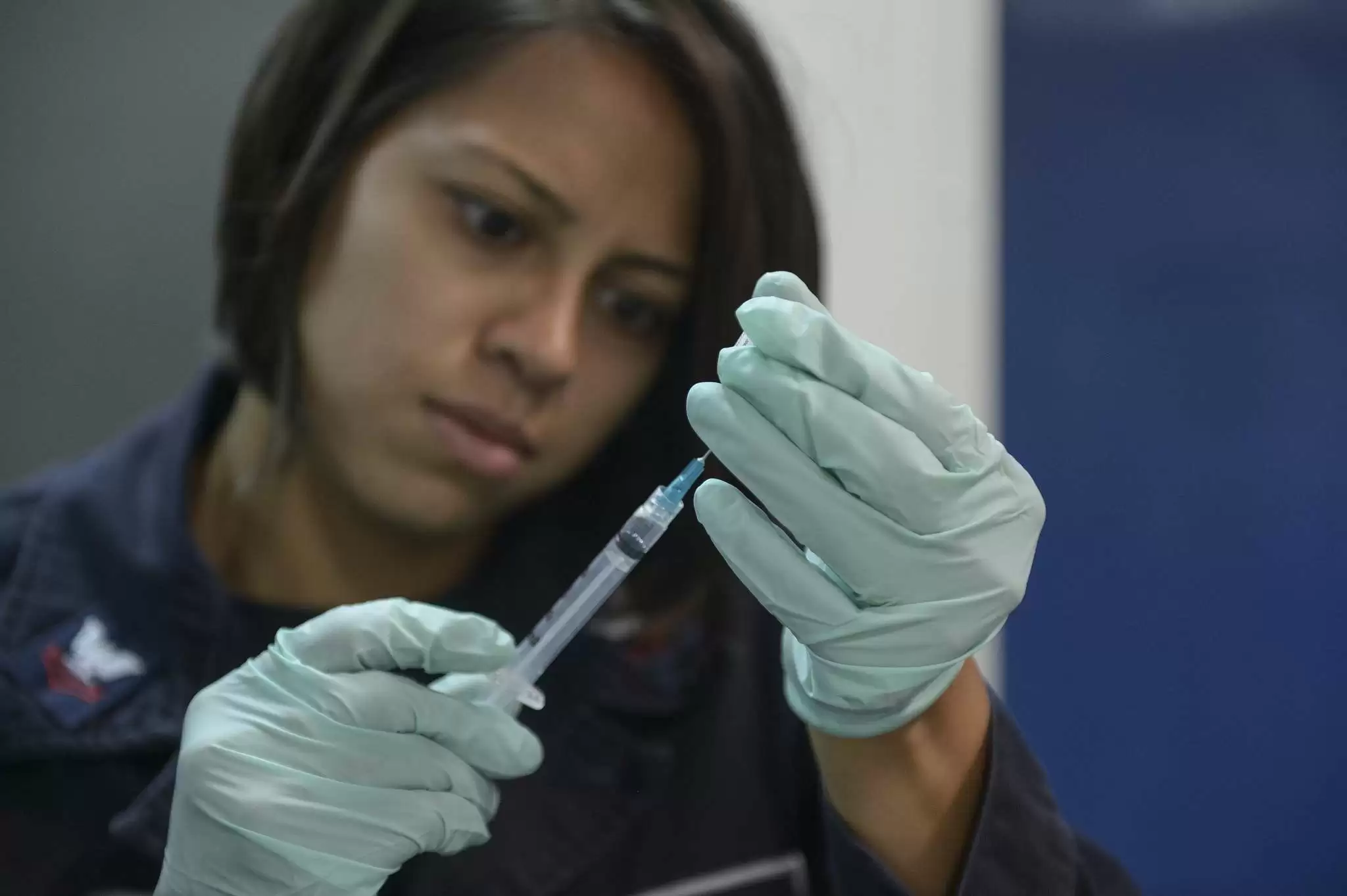
Celiac.com 03/22/2019 - I'm going to talk about my journey through the Nexvax2 trial. It is a clinical trial to study the effectiveness of this drug to prevent mucosal damage due to cross contamination. There are 4 phases to this trial - Screening, Updosing, Maintenance, and Post-Study. Each phase has different requirements from the patient and different goals.
Screening for the Nexvax2 Clinical Trial
I found out about the Nexvax2 trial from my sister. Her job involves keeping up with medical stocks. She saw that ImmusanT had started their clinical trial - a double, blind, placebo controlled study for an injection to retrain the immune system to stop recognizing gluten as a foreign invader. It works similarly to allergy shots desensitizing the immune system to gluten. I looked up the trial at ClinicalTrials.gov and made a phone call to the nearest location.
Celiac.com Sponsor (A12):
There were 35 trial locations across the US and a couple of locations in Australia. I live in Atlanta and the closest locations were in Jacksonville, FL or Nashville, TN. I decided to call Nashville because it is only a 4 hour drive compared to the 6 hour drive to Jacksonville.
I called and talked to Nurse Ratchet (not her real name, to protect the innocent). She explained that it was a long trial, about 7 months, and that I had to be in Nashville twice a week for six weeks. She said she would send me the patient disclosure and she would answer any questions I had when I was ready. She also said that I needed to be able to prove my Celiac diagnosis with both positive blood work and positive endoscopic biopsy. I would have to be on a gluten free diet for 12 months. I would also have to carry the DQ2.5 gene and do a gluten challenge. I will also have to decide if I'm going to participate in the optional endoscopy portion of the trial.
The twice a week for six weeks thing threw me for a loop. That would be a big time commitment, hard on my family, and very expensive. I wasn't sure we could do this.
As my husband and I review the disclosure document, there is a lot of information to take in. One of the requirements to get in the trial is having the DQ2.5 gene. I've had genetic testing done several times and knew I had one copy of DQ2.5. In reading the documents, if you have one copy of DQ2.5, you have a 1 in 2 chance of receiving the drug. If you have two copies of DQ2.5, you have a 2 in 3 chance of receiving the drug. Nexvax2 does not work for those with DQ8. According to research, over 90% of people with Celiac have DQ2.5.
So, I have 50/50 chance of getting the medicine and I have to be in Nashville twice a week for six weeks. That is a big time commitment for a 50/50 chance at the medicine. We decide it isn't worth it. Until, I talk to Nurse Ratchet and she confirms that if I get placebo in the trial, I will get the medicine when the drug is approved. Now we are talking. I have a 100% chance of getting the medicine - either sooner or later. We decide to go for it!!
I find my medical records that demonstrate I have Celiac disease, send them to Nurse Ratchet and we schedule my first appointment - November 1.
The first appointment lasts for 8 hours. The initial testing involves blood work, urine tests, EKG, physical, and do a gluten challenge. This is going to be a very long day. The gluten challenge is the most worrying part. I will have to ingest a lot of gluten - the equivalent of two slices of bread. They will gauge my reaction after the drink and monitor me for the next few hours. I have 5 minutes to consume the unflavored gluten drink.
At this point, you might be thinking why would I purposefully ingest gluten? I'm poisoning myself. I know I'm going to be sick. What sane person does this? A person that is tired of being sick. I'm tired of worrying about food all the time. If this is what I have to endure to ensure that I can get better, I'm in.
After consuming the gluten poison, we wait. After about an hour, I start feeling fatigue - mind numbing fatigue. The kind of fatigue that you just want to lay in a dark, cool room under a blanket thinking of nothing. At hour two, the vomiting starts. I throw up twice in about a 30 minute span. My reaction is severe enough to qualify into the study. But now I have to start to deal with the consequences of glutening myself. Once the testing is over, I get on an airplane and fly home. That was a miserable flight. I won't bore you with the unpleasant details, but know the flight was not good.
I'm miserable the whole week after the gluten challenge. Fatigue, brain fog, gastrointestinal distress, and just feeling bad is what I dealt with for a week. A full seven days of being completely incapable of living my life in any meaningful way. It was a week of watching TV, ordering food in, and just breathing. Eventually I get better. When the malaise lifts, it lifts like opening a curtain to reveal bright sunshine. I am finally better.
We opted to do the optional endoscopy study. I had to go back to Nashville at the beginning of December for the endoscopy. The flight, fasting, and doing the test in the early afternoon did not make for a great day. Really, it was a very bad day. Normally, I don't struggle with endoscopies. Normally I simply do the endoscopy and go eat a big meal and am fine for the rest of the day. This time I slept from about 1 hour before my procedure, through the procedure (they gave me good stuff to help with that), and then on the 4 hour car ride home. I slept a lot that day.
Then we wait. We have to wait for all of the blood tests and endoscopy results. About a week after the endoscopy, Nurse Ratchet confirms I have made the cut. I'm in the trial!
During the trial, I had to promise to not start taking any supplements or medicine without letting them know. I had to put a card in my wallet that said that I was in a clinical trial and it not give me medicine until the doctor called this number.
There are also surveys you have to fill out on the little device they give you. You have to do them every night and they must be completed between 6 pm and midnight. Most days it is two surveys - one asking about symptoms and one about your bowel movements. The one about the symptoms asks you to rate how your symptoms are on a scale of 1 to 10. The other asks how many bowel movements you've had and tell what they were like on the Bristol Stool Chart.
In the whole 6 month period you are only allowed to miss 4 surveys. I set two alarms to remind me - one at 6 pm and one for 8:30 and carried the device with me at all times so I could do the survey when ready.
We have completed phase 1 - the screening phase. Now, it is time for phase 2 - updosing.
Updosing: Reaching the Nexvax2 Dosage
In reading the consent document, updosing is important because when they tried to give people the full dose of the medication in Phase 1 trials the side effects were too dramatic and people dropped out. The main side effects of this medicine are headache, fatigue, and diarrhea.
Those side effects are the same for me when I get cross contaminated so I wasn't worried about the side effects.
On the first injection day, I had to be in Nashville for for 4 hours so medical personnel can watch you and make sure you don't have an allergic reaction. They use a small insulin needle to inject the drug, so it doesn't hurt. The shot does have to go into your belly, so that's a little weird. I would have preferred it in my arm! The first dose is a very small dose of the medicine with a lot of saline. Over time the amount of medicine increases and saline decreases until about half way through. About half way through the up dosing, you get the medicine straight, no chaser (no saline).
The updosing is not a challenge. I did have periods where I did experience side effects. Occasionally, I had problems with fatigue and headache, but it did not affect my life or how I functioned. There was one time, specifically, I had an issue with fatigue and headache. This was a bad headache. It did not let up with ibuprofen or acetaminophen alternating every 4 hours. It was about half way through the updosing and it lasted for about 3 days. Then it lifted. Everything was gone and I was back to feeling good.
Also over the course of this study, I've had periods of flushing. Flushing where my face and neck would turn bright red and feel like they are on fire. When this happens, I would take a Benadryl and go to bed. My mom thinks it is menopause, but that's just for old ladies, not me. The hardest part about updosing was the travel and the grind of going twice a week. I also was doing this in December and January. December and January are hard because of the holiday season, but we also have 3 family birthdays during the span of this period. But we made the best of it and one time the whole family came with me and we spent a couple of days in Nashville.
Maintenance Dosing
Once updosing is complete, maintenance dosing starts. Maintenance dosing is 10 weeks of twice weekly injections of the full amount of medicine. They are self-injections. The injections need to stay refrigerated, so I have this super cool cooler in my fridge. TSA didn't even flinch when I came through security!
I got 20 auto-injectors for the ten weeks of twice weekly injections, alcohol swabs, and a log book. I had to log the date, time, and location of my injection. You inject in a pattern in your abdomen- upper right, lower left, lower right, and finally upper left. I will say this phase was a bit of a relief for me. It meant less travel and just kind of coasting along. Until, the food challenges - duh duh duh daaaaa!
The food challenges are to see if the medicine is working. There are three food challenges - one gluten, one placebo, and one either gluten or placebo. So, you will get gluten at least once but not more than twice. The challenges are spaced two weeks apart.
The procedure for the food challenge is much the same as at the initial gluten challenge. They do the normal stuff - weight, blood pressure, and temperature. Then they pull out the big white box with my name on it. Inside the big white box is three smaller white boxes. They all are sealed. These are my food challenge boxes. She takes the first box out and opens it. It contains a shaker bottle, a box of water, and two packets of powder. One packet of powder is flavoring and the other is the test material. She mixes the drink per the instructions and I have 5 minutes to consume this beverage.
The drink is pink and overly sweet. (At the gluten challenge, there was no flavoring. Just straight up gluten.) The test drink tastes terrible, but I consume the beverage. Then we wait.
We wait to see if my body reacts the same or differently to the initial gluten challenge at the start of the trial process. It is just a waiting game.
They said I could keep the shaker bottle we mix my food challenge drinks in. They are really nice shaker bottles. I cannot keep them. I truly never want to see those shaker bottles again. Those shaker bottles are my enemy and I want no part of them. Those shaker bottles make me sick and I don't want them.
I've done two food challenges to this point. One I had no reaction and the other I reacted. I threw up, but I wasn't tired for a week. I was tired for 24 hours.
So, that's where we are. We are working through the process.
I have no idea if I'm getting the medicine or placebo. I don't know if I got gluten at any of the food challenges. That is what makes this so hard. The mental gymnastics of am I getting the medicine or am I not - is very, very challenging. It can consume all of your thoughts if you let it.
Post Trial
I haven't gotten to this part yet, I'm still in the food challenges phase of the study. The final part of the study means I will turn in all my used autoinjectors and boxes, log from where and when I did injections, and be turned loose into the world with my new found protections against cross contamination. It will be exciting.
Conclusion
I don't know if I got medicine or placebo. I may never know for sure. I have guesses and theories but that is all I have, which makes this really hard mentally. It is hard to have symptoms or not have symptoms and not know if you are getting the medicine. But I think those mental gymnastics are not helpful. I went into this hoping for a cure with the expectation that I would not receive the medicine and would be sick quite often. I haven't been any more sick than I would have been living my life normally, so that's a good thing.
Some people argue that they never want a medicine for Celiac. They don't want a vaccine or any part of anything from Big Pharma. They say putting gluten in your body is inflammatory and bad for everyone. They say Roundup causes Celiac disease and if you eat organic all will be fine.
Here's my answer - If you don't want the medicine, don't take the medicine. It isn't required and nobody will force you to take it. But this disease has impacted my life so dramatically, I'm willing to try a new medicine to alleviate the symptoms. This disease has affected my family, my health, my social life, and my ability to vacation among other things.
Even if this or any other medicine is approved, I'm not sure I would return to a full gluten diet. I don't mind a gluten free diet. I mind the constant vigilance I have to have all the time while eating three meals a day. I mind that many labels are not accurate when they say an item is gluten free, but it has barley or rye in the product. I mind that I can't just take a road trip with my family without carefully planning each meal along the route so that I'm sure I can eat safely. I mind that I have to ask every waiter 15 million questions before ordering at a restaurant in order to get a meal that is safe and even then I'll probably be sick. I mind that I can't engage in normal social activities, like sharing a meal with someone, without doing research on where we can go or just having to bring my own food. I mind not being able to have a scoop of ice cream with my kids at the beach in the summer. I mind a lot of things that this disease has imposed on me.
I believe most other Celiac sufferers endure the same hardships I do in finding safe foods. So, finding a cure or at least something that makes our lives better is a worthy cause that should be encouraged and cheered. Maybe others don't share my struggles and that is great. Maybe they are happy never going to dinner or out with friends. I'm not. I want a normal life or even some semblance of one where I can do the most basic and ancient ritual of society - sharing a
meal without fear.
So, take the medicine or not - it's up to you, but don't knock the people who want it.



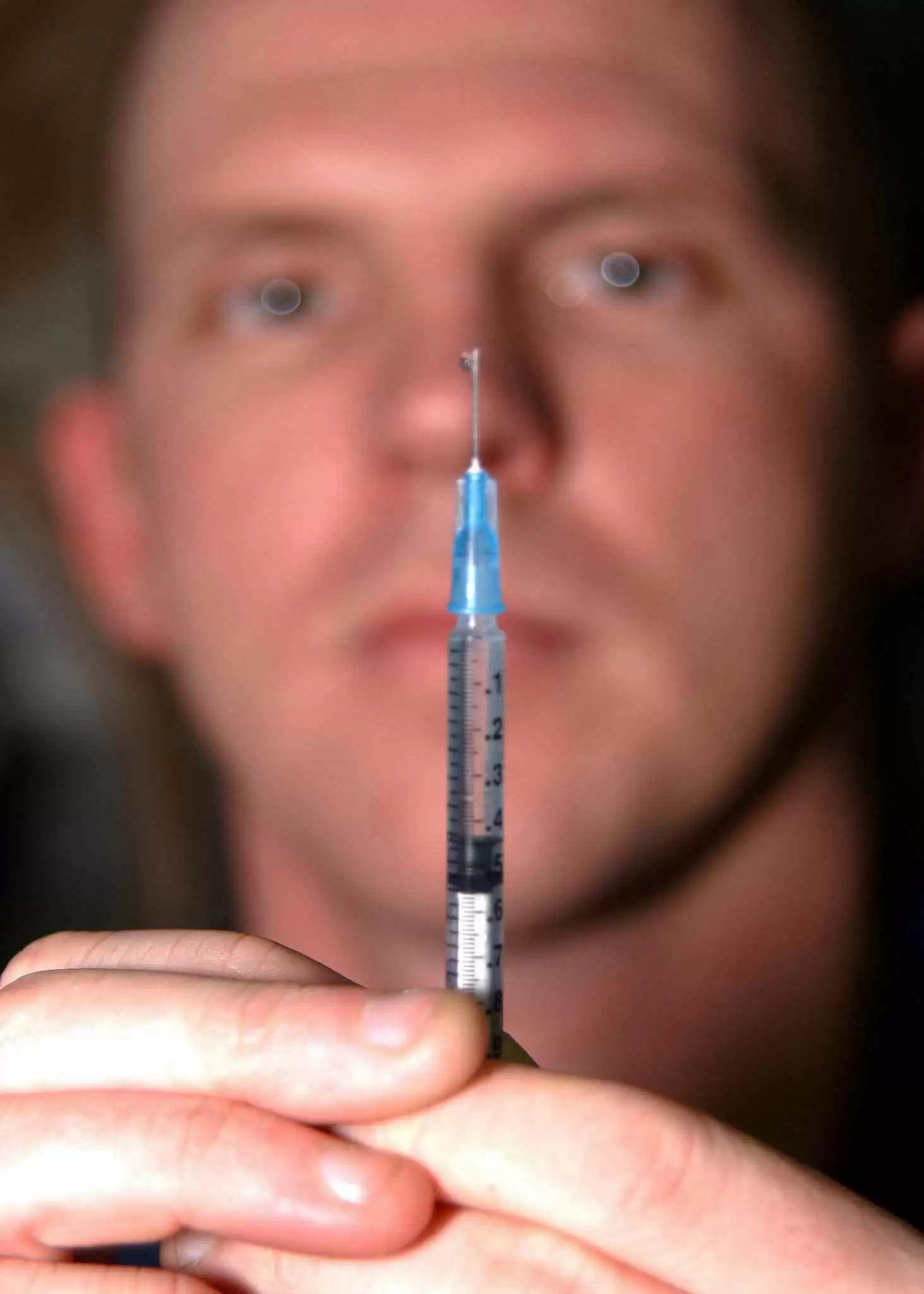

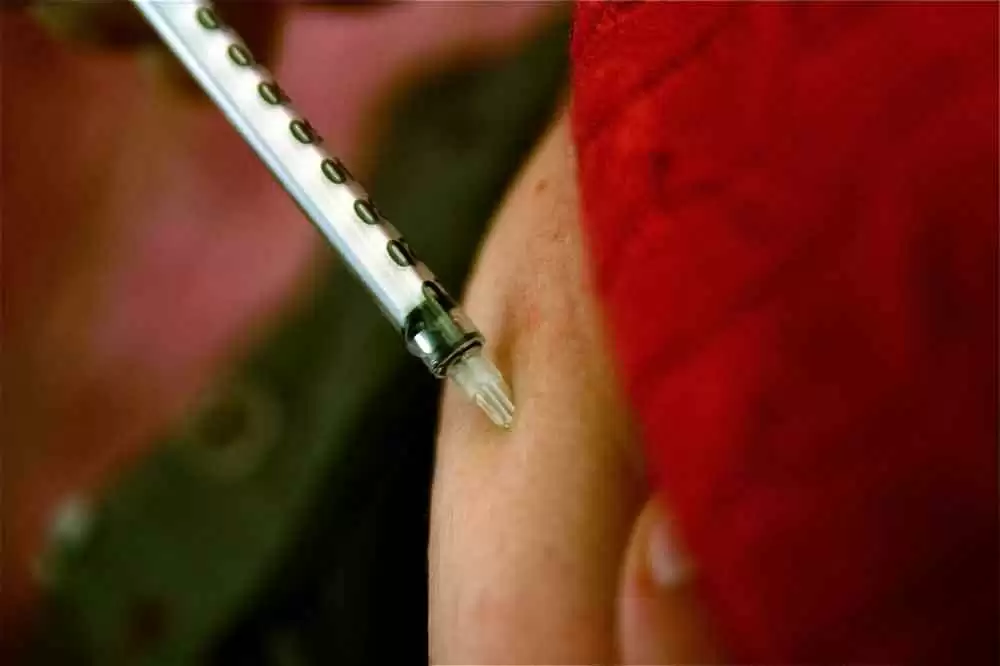
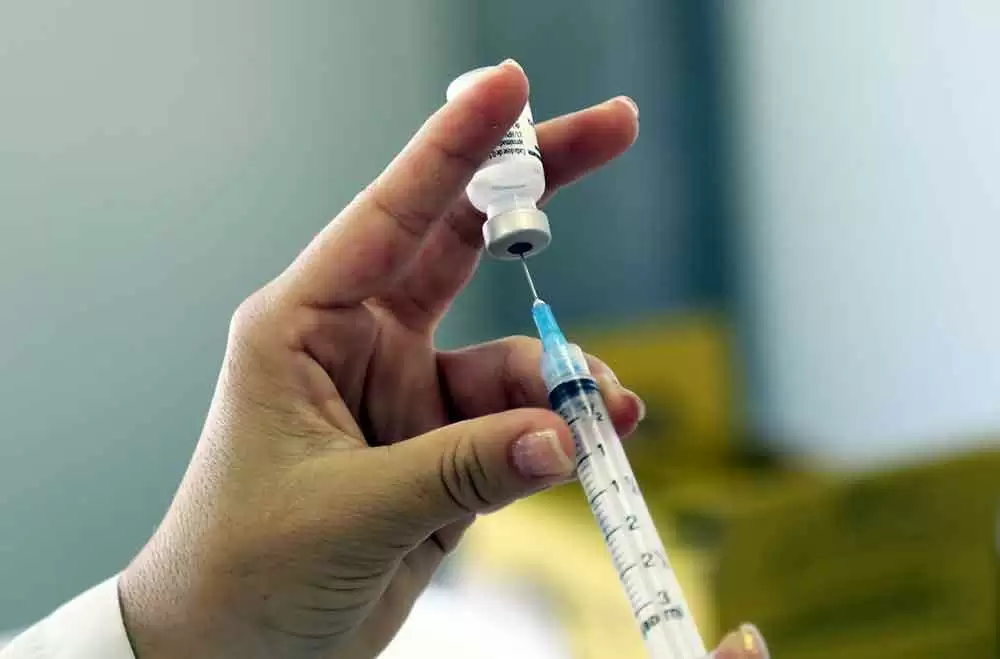
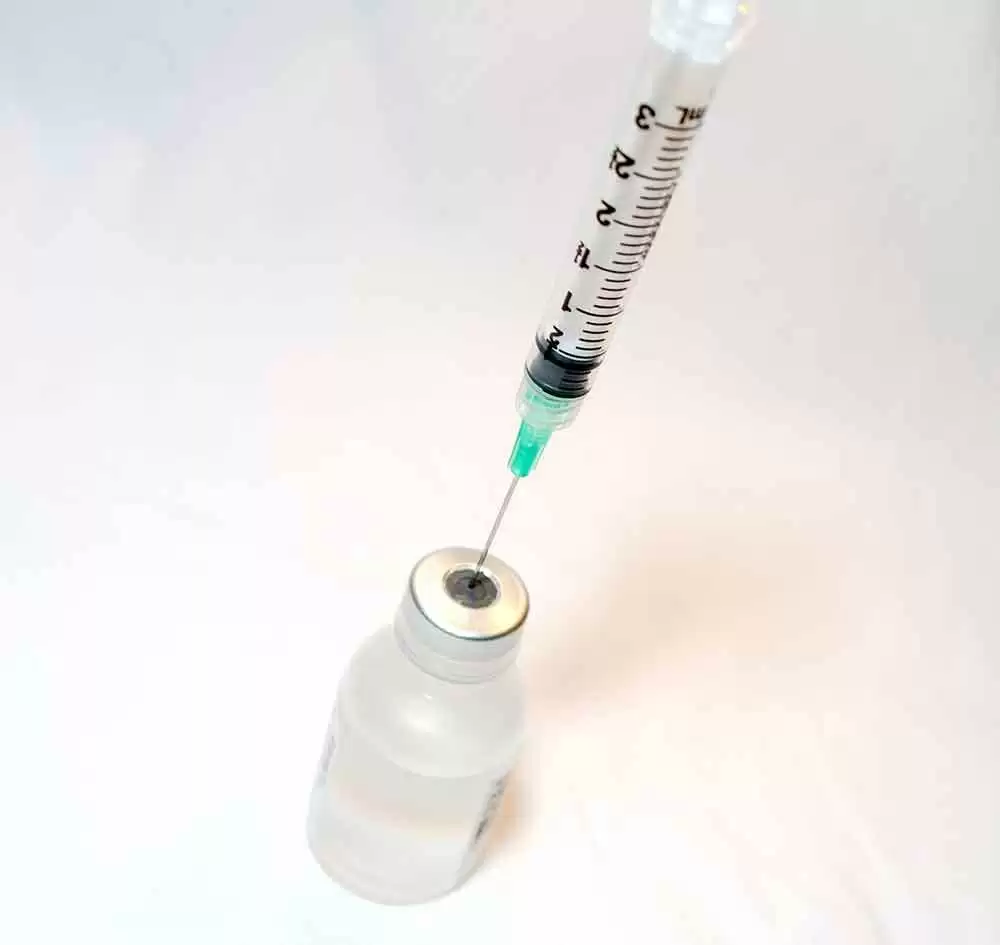



Recommended Comments
Create an account or sign in to comment
You need to be a member in order to leave a comment
Create an account
Sign up for a new account in our community. It's easy!
Register a new accountSign in
Already have an account? Sign in here.
Sign In Now